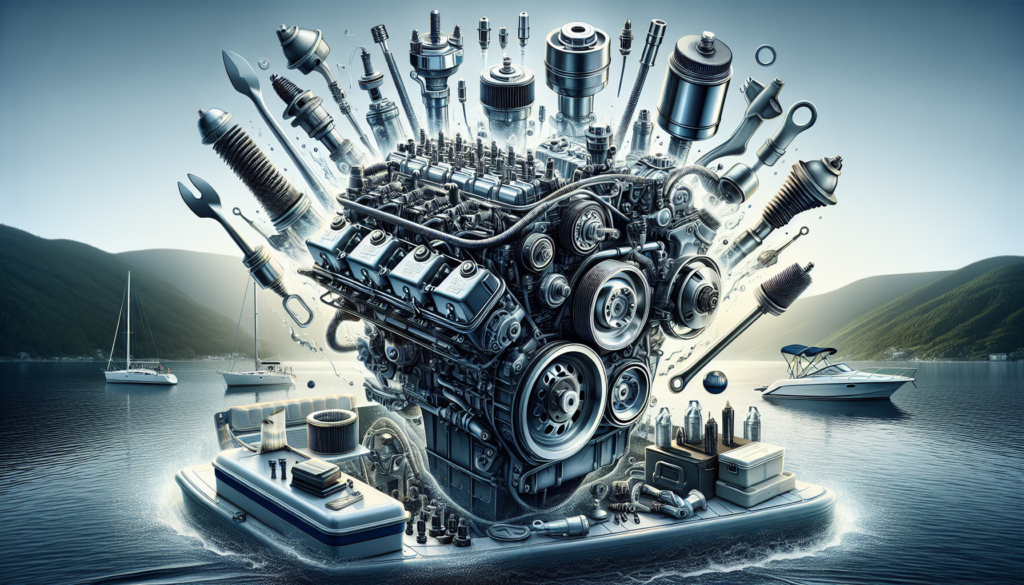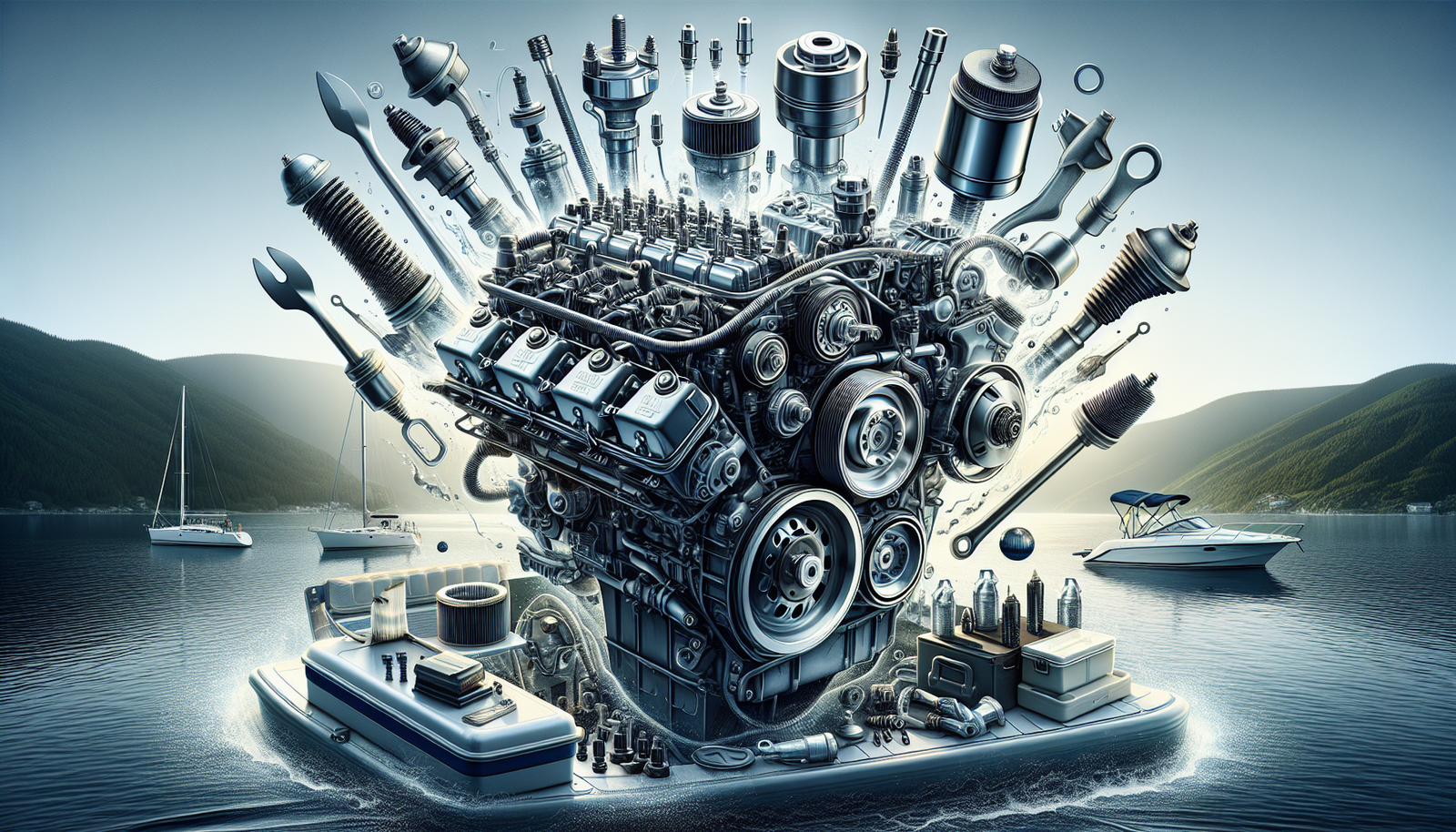As a boater, nothing can ruin your time on the water faster than an engine failure. In the following article, you’ll find a comprehensive guide to maintaining your boat’s engine and warding off the common issues that can lead to unexpected breakdowns. You’ll learn how crucial regular inspections, proper fuel management, and adequate cooling system upkeep are for preventing engine troubles before they even have a chance to start. ‘Top Boat Engine Breakdown Prevention Tips Every Boater Should Know’ is an essential read that will arm you with the knowledge you need to keep things running smoothly and enjoy your time on the water.

Understanding Boat Engine Maintenance
As a boat owner, you’re familiar with the thrill of slicing through the water and the sense of freedom that comes with it. But it’s crucial to remember that boat engines require regular attention and care to operate as expected. Here, we’ll explore the importance of routine maintenance, the fundamental components of an engine, and an introduction to boat engine care.
Importance of Regular Maintenance
When it comes to prolonging the lifecycle of your boat, regular maintenance is non-negotiable. Keeping up with the maintenance of your boat’s engine ensures optimal performance and less downtime due to repair or failure. Imagine being out for a delightful sail and suddenly finding yourself stranded due to a preventable mechanical issue. Routine maintenance not only saves you potential hassles but also provides peace of mind when you’re out on the water.
Basic Parts of a Boat Engine
Like any mechanical device, a boat engine is made up of many parts, each serving a critical role in its operation. Familiarity with these parts will help you better understand maintenance needs. Key components include the propeller, responsible for moving your boat through the water, and the impeller, which ensures water circulates properly within the engine to prevent overheating. Your engine also features a fuel system, essential for supplying gas, and a cooling system, integral for maintaining appropriate engine temperatures.
Introduction to Boat Engine Maintenance
Maintaining your boat engine isn’t as daunting as it may seem initially. Routine care often involves tasks such as checking fluid levels, inspecting and changing filters, and ensuring electrical systems are functioning correctly. It may also require periodic cleaning, alignments, and component replacements. The subsequent sections of this guide delve into specifics for each of these areas, providing you with top tips for preventing engine breakdowns.
Common Cause of Boat Engine Breakdowns
Engine breakdown is an unfortunate possibility every boat owner might encounter. But you can preemptively tackle common causes of these break downs with appropriate knowledge and preemptive measures.
Overheating
Overheating is a significant threat to boat engines. It can cause serious damage and usually results from failing to properly maintain the cooling system.
Lack of Oil or Fluid Leaks
Engine damage may also often stem from a lack of oil, leading mechanical parts to rub against each other, causing excessive wear and tear. Fluid leaks can also contribute to possible engine damage.
Failure in the Fuel System
Another common cause of engine breakdown is the failure in the fuel system. This could manifest in many ways – from the use of poor-quality fuel to clogged fuel filters or air vents.
Electrical Failures
Electrical failure, caused by low battery power, corrosion, or short circuits, can lead to engine breakdowns that might leave you stranded mid-water.
Impeller Failures
The impeller, a key part of the engine’s cooling system, can succumb to wear and tear, leading to overheating and potential engine damage.
Preventing Overheating Issues
Overheating issues, being quite common in boat engines, require careful attention and preventive measures.
Proper Cooling System Maintenance
One of the most effective ways to prevent overheating issues is ensuring proper maintenance of the cooling system. This includes regularly checking and replacing your engine’s impeller and keeping an eye on the thermostat to ensure it’s working correctly.
Understanding the Causes of Overheating
Understanding the causes of overheating can help you prevent it in the first place. This usually involves a problem with the cooling system — parts may be blocked with debris, or the water pump could be failing. In some cases, your engine may simply be working too hard and producing excess heat.
Avoiding Overworking the Boat Engine
Just like any machine, if a boat engine is pushed beyond its limit, it can overheat. Make sure you’re not overworking your engine. Be aware of its performance capacity and heed any signs of stress, such as increased noise or reduced power.

Keeping a Healthy Fuel System
The health of your boat’s fuel system plays a crucial role in overall engine performance.
Using Quality Fuel
While it may be tempting to opt for cheaper fuel, it can lead to trouble down the line. High-quality fuel can improve engine performance and longevity.
Regular Fuel Filter Changes
Over time, the fuel filter can become clogged with debris, causing your boat to run less efficiently. Regular replacements can avoid this issue and boost fuel efficiency.
Ensuring Air Ventilation and Cleaning the Tank
It’s essential to ensure that your fuel tank is properly ventilated to allow air to escape. Also, regular tank cleaning can prevent the buildup of sludge that can block the fuel system.
Preventing Fluid Leaks
Fluid leaks can cause a significant amount of damage if not addressed promptly.
Regular Checking of Oil and Coolant Levels
Be sure to check oil and coolant levels regularly. If you notice a sudden drop, it could signal a potential leak.
Spotting and Addressing Leaks Early
Survey your engine compartment regularly to catch leaks early. Puddles of oil, coolant, or other fluids beneath your boat are telltale signs.
Importance of Using Right Engine Oil or Coolant
It’s crucial to use the right engine oil or coolant. Incorrect types can damage your engine or cause leaks, so refer to your boat’s manual for specific recommendations.
Addressing Electrical Issues
Electrical issues can be complex and frustrating, but proper care and maintenance can mitigate these problems.
Importance of Regular Battery Checks
Regular battery checks can prevent unexpected engine failure. Ensure the connections are secure and free of corrosion, and the battery holds its charge.
Dealing with Corrosion
Maintain the integrity of your electrical connections by preventing and dealing with corrosion. A coating of petroleum jelly or a commercial anti-corrosion product can offer additional protection.
Precautions to Prevent Short Circuits
Avoid electrical failures by safeguarding against potential short circuits—protect wires with suitable insulation, and never overload your boat’s electrical system.
Caring for the Impeller
The impeller, an often overlooked but vital component of the boat engine, requires regular attention.
Importance of Correct Impeller Installation
An improperly installed impeller can lead to inefficient cooling and potential engine damage. Ensure that it’s installed according to the manufacturer’s guidelines.
Signs of Impeller Problems
Get familiar with common signs of impeller issues, such as engine overheating, reduced water flow, or abnormal engine noise, and attend to them right away.
Replacement Scheduling for Impellers
The impeller should be replaced regularly – about every 100 hours of operation or at least once a year, even if there are no manifesting issues. Refer to your owner’s manual for specific guidance.
Dealing with Propeller Issues
The propeller, the driving force of your boat, should be kept in prime shape for optimal performance.
Regular Inspection and Cleaning of Propellers
Inspect and clean your propeller regularly to spot any signs of damage, such as nicks or dents, and remove any tangled debris.
Addressing Cavitation Issues
A cavitation issue may result from a damaged propeller and can lead to vibration, reduced speed, and potential engine damage. If you suspect cavitation, inspect your propeller and repair or replace it if necessary.
Proper Storage of Propellers
When not in use, remove your propellers, clean them, and store them in a dry, safe place. This can prevent damage and ensure they’re ready for your next voyage.
Engine Alignment and Mounts Maintenance
Proper alignment of the engine and caring for the motor mounts are essential for smooth and efficient operation.
Understanding Importance of Engine Alignment
Misalignment can increase vibration, causing premature wear and tear on your drive system. It’s essential to check alignment periodically – around once or twice a season.
Checking Motor Mounts Regularly
Motor mounts that are in poor shape can lead to engine misalignment. Regularly inspect the mounts for cracks, rust, or other signs of damage.
Proper Procedure in Engine Alignment
Aligning a boat engine can be complex and may best be left to professionals. However, if you’re tackling it yourself, always follow your boat’s manual to ensure you get it right.
Winterizing Your Boat Engine
For those who live in colder climates, winterizing your boat engine is an essential end-of-season task.
Procedures in Winterizing Boat Engine
Winterizing typically involves steps such as changing the oil, draining the engine of any water, adding antifreeze, and greasing moving parts. Each engine is unique, so always refer to your owner’s manual for best practices.
Importance of Engine Winterization
Winterizing is crucial in preventing potential damage from freezing temperatures. It also promotes your engine’s longevity and saves you a great deal of time, effort, and money when spring comes around.
Dealing with Risks of Non-Winterized Engines
Neglecting to winterize your engine could lead to significant damage, including frozen components, cracked blocks, and even total engine failure. Prevention is always better than cure – make sure you don’t skip this critical step.
In conclusion, by understanding the basics and keeping up with regular maintenance, you can ensure your boat performs optimally and reliably. Happy boating!

